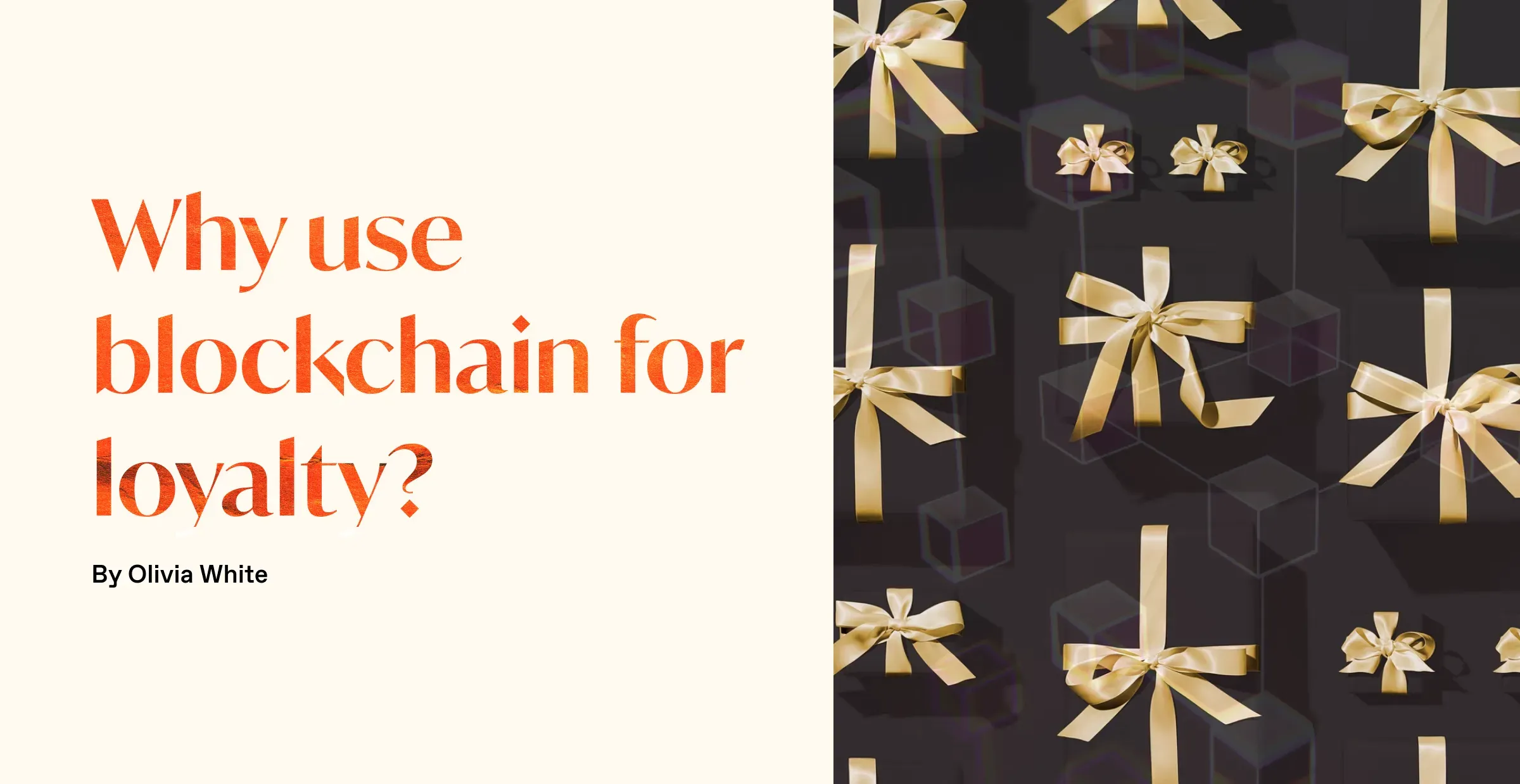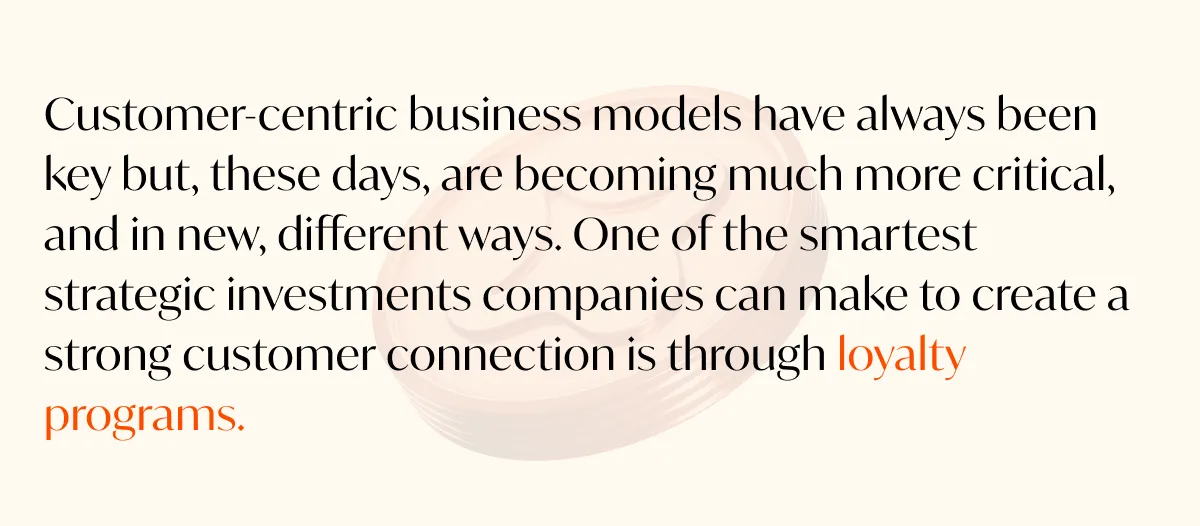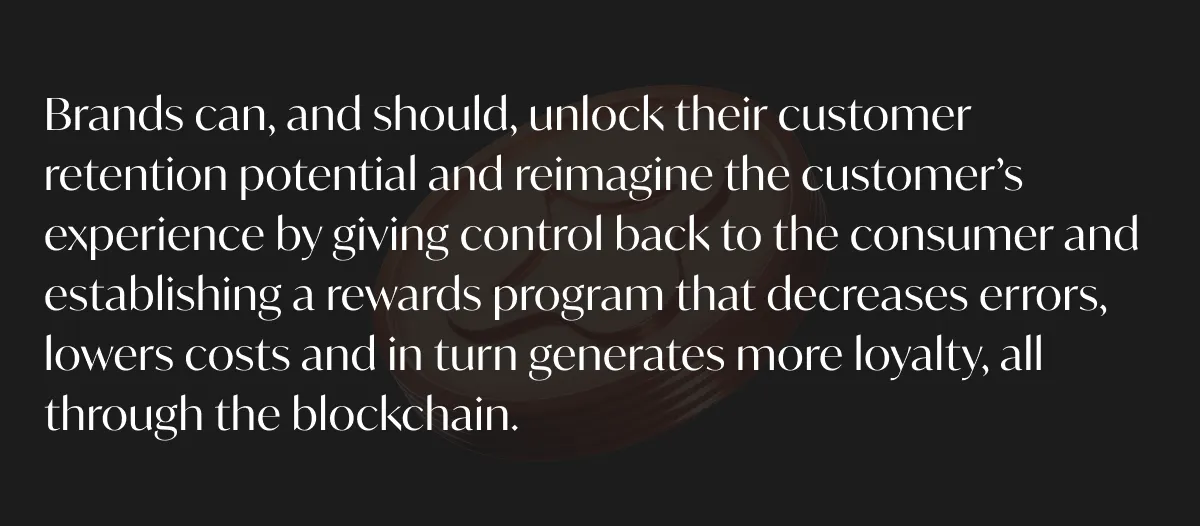
Why use blockchain for loyalty?
First up: the blockchain, its relationship to loyalty and rewards, and how it benefits both brands and shoppers alike.
Customer-centric business models have always been key but, these days, are becoming much more critical, and in new, different ways. One of the smartest strategic investments companies can make to create a strong customer connection is through loyalty programs. While this is nothing new, the success of these models is shifting. The number of e-commerce brands is only going up, a social media presence is expected (with Gen Z spending five hours on social media a day), and creators are now new advertising channels, among so many other ever changing realities. The result is a lot of noise, and a lot less reason to be loyal. At the same time, customers are needing more to build commitment to a brand: more trust and transparency, more security and simplicity, and finally, more flexibility.

A census report gathered even back in 2015 by Colloquy showcased an increase in loyalty program enrollment, but users were actually active in less than half of their memberships. The unfortunate reality remains: brands are spending too much to acquire new customers, struggling to keep them and receiving too little in return. Meanwhile, customers are feeling like an afterthought and, as a result, are highly unmotivated to activate as brand representatives. Many of the complaints from consumers around current loyalty structures include confusion around the use of rewards, unattractive and oftentimes unrealistic restrictions and deadlines, chaotic management, misuse of personal data, and then some. Sound frighteningly familiar?
The benefits of using the blockchain to develop a loyalty platform that eliminates these customer frustrations and improves a business’ bottom line seem to be endless. Brands can gamify their websites to create a more fun, trustworthy and genuine customer-brand connection, mutually benefiting both sides with boosted customer retention and with no sneaky secrets or data sharing. Deloitte summarizes additional solutions in a 2016 report:
- Providing a secure environment: The infrastructure of the blockchain is immutable and time-stamped — making each transaction traceable and irreversible. This prevents fraud and other manipulations and gives consumers peace of mind.
- Creating an effortless system: Putting a loyalty program on-chain unifies the tech stack with everyone else on the network, fostering an interoperable ecosystem. This provides a decentralized asset solution, while simultaneously centralizing the many programs a customer is a member of. With one global login to a personal and digital wallet, gone are the days of sifting through multiple accounts to figure out how, where and by when each reward, or token, can be used. To dive in a bit deeper - blockchain requires the same software between customer-provider, and provider-provider. All actors in the network have access to the same software, lending to natural interoperability between customers. This detail reveals the mechanism that creates a more frictionless system: consensus tech. This then unifies the tech stack across parties, so no plumbing is needed between providers.
- Provide and receive at any point: One exciting use case for real time transactions is with airdrops**. E-commerce brands have the capability to instantly reward website viewers with an airdropped token when they, for example, spend a certain amount of time reading their content. This again creates a gamified experience and will intrigue the consumer to explore what else might initiate a reward.
- Creating unique business opportunities: Through branded partnerships and an interlinked network, loyalty rewards providers can offer value-added services to other businesses which then provides customers with a wider network to redeem their tokens and rewards.
- Reduction of costs: The price brands pay for the management, transaction, and acquisition of a customer and their reward program costs can decrease drastically with the implementation of a blockchain-based loyalty program that executes programs almost instantaneously, contains smart contracts*, and eliminates centralized management.

With 77% of consumers saying they are likely to shop again with a brand that offers a loyalty platform, it’s no surprise, but imperative to recognize, that the loyalty program management market is expected to be worth $18.2 billion in just four years, growing from $8.6 billion last year. Brands can, and should, unlock their customer retention potential and re-imagine the customer’s experience by giving control back to the consumer and establishing a rewards program that decreases errors, lowers costs and in turn generates more loyalty, all through the blockchain.
*Smart contracts: “self-executing computer programs that automatically implement the terms of an agreement between parties when conditions are met.” - Deloitte x The Wall Street Journal
**Airdrops: “initiative undertaken by a crypto project with a native coin or token to distribute its cryptocurrency to current or potential users — usually for free — in a digital asset giveaway” - Cryptopedia